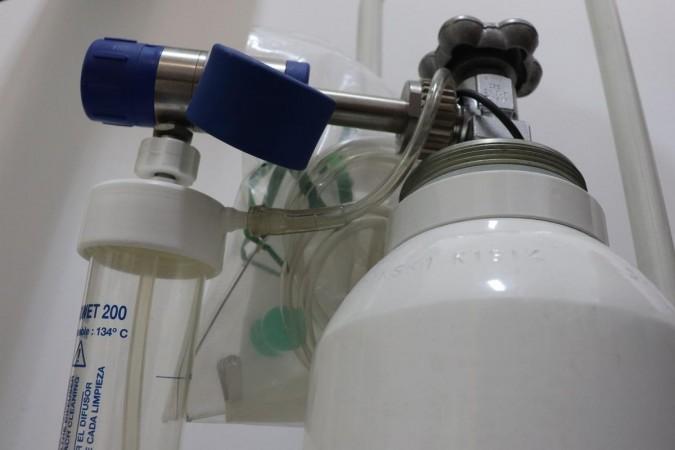
Bringing safety standards is crucial for hyperbaric medicine therapy, said experts on Friday, even as an Uttar Pradesh couple duped dozens of elderly people for the therapy.
The Hyperbaric Oxygen Therapy (HBOT) involves breathing pure oxygen in a pressurised chamber. This increased oxygen pressure allows more oxygen to dissolve in the blood and reach tissues that may be deprived of it.
The popular therapy has been used worldwide to boost healing and reduce infection, to repair damaged tissues, carbon monoxide poisoning, diabetic foot ulcers, and wounds that won't heal. It reportedly is also used for autism, cerebral palsy, and multiple sclerosis.
"When you give oxygen under an additional pressure, it can deliver a significant amount of oxygen to the tissue, in addition to the normal oxygen which is carried in the blood. This additional oxygen is carried in the plasma part of the blood and as it reaches different parts of the tissues," Prof. (Dr.) Tarun Kumar Sahni, Head of Hyperbaric Medicine & Sr. Consultant Internal Medicine, Apollo Hospital, told IANS.

"It is known to have a lot of positive effects and is well-used for non-healing wounds, diabetic gangrene, radiation tissue damage, acute hearing loss, sudden vision loss, and a large number of other conditions," he added.
In the last few years, there has been a rapid growth in the usage of the therapy, with many celebrities like pop singer Justin Bieber promoting it for reversing aging.
Closer home, actress Samantha Ruth Prabhu recently in an Instagram post spoke about receiving hyperbaric therapy for her autoimmune condition.
The actor has been diagnosed with myositis -- a condition that can cause muscles to become weak, tired, and painful.
While the therapy has shown promise, it also comes with serious side effects, and may not be safe for all.
"Potential side effects include ear damage, sinus problems, and oxygen toxicity. HBOT is not recommended for pregnant women, those with untreated pneumothorax, or active cancer. People with chronic illnesses, respiratory issues, or pacemakers should consult their doctor before undergoing HBOT. FDA-approved indications are limited, and insurance coverage varies," Dr. Vivek Anand Padegal, Director – Pulmonology, Fortis Hospital, Bannerghatta Road, told IANS.
On its misuse, as by the Uttar Pradesh couple, Sahni said: "It's like if you are driving a car without a seatbelt at a very high speed, and you have an accident and you are likely to lose life. The same thing happened with the equipment which was being used by the UP couple. They did not fulfil any safety standards, which is crucial."
Dr. Arun Kotaru, Consultant, Pulmonology & Sleep Medicine, Artemis Hospitals, told IANS that HBOT is not a cure-all and may not be effective for all conditions.
"It's essential to consult a healthcare professional to determine if HBOT is appropriate for you and to discuss potential risks and benefits," the expert said.
(With inputs from IANS)





!['Had denied Housefull franchise as they wanted me to wear a bikini': Tia Bajpai on turning down bold scripts [Exclusive]](https://data1.ibtimes.co.in/en/full/806605/had-denied-housefull-franchise-they-wanted-me-wear-bikini-tia-bajpai-turning-down-bold.png?w=220&h=138)



